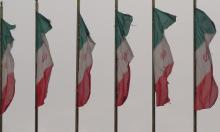Washington shows respect for Moscow
President George Bush telephoned President Vladimir Putin before he made his speech on the deployment of a Nuclear Missile Defence over the USA at the Pentagon’s University of national Defence, informing the Russian President about its contents. This gesture shows the first signs of a reported openness towards Russia, after National Security Advisor made some out-dated and bombastic statements reported in Le Figaro last year, reported by Pravda.Ru., referring to Russia in Cold War terms, an openness which was yet to be revealed. President Bush promised the Kremlin that the USA will not take any “unilateral decisions” without consultations. “These will be real consultations, we do not have any intention of confronting our allies and friends with unilateral decisions” said George Bush. He went on to state that “Contrary to the times of the Cold War, the greatest threat nowadays, does not come from thousands of ballistic missiles from the Soviet Union but from a small number of weapons in the hands of those nations for whom terror and blackmail is a way of life”. Here he was referring to Iran, Iraq and North Korea. The current balance of power is reportedly the following. Intercontinental Ballistic Missiles (ICBM) USA 2151 RUSSIA 3604; Submarine Launched Ballistic Missiles (SLBM) USA 3616 RUSSIA 2024; Bombers (nuclear capacity aircraft) USA 1528 RUSSIA 674; Total of warheads USA 7295 RUSSIA 6302. President Bush told President Putin that in the opinion of the USA, “We need a new framework that allows us to build missile defences to counter the different threats of today’s world…(we need to) move beyond the constraints of a 30-year-old treaty which does not reflect the present or point us to the future. It enshrines the past”. While the USA seems determined to implement the Nuclear Missile Defence shield by 2004, giving George Bush a political leverage to win a second term in office, George Bush makes the most conciliatory sounds towards the Russian Federation since his coming into office: ”Russia and the United States should work together to develop a new framework for peace…that moves beyond the adversarial legacy of the Cold War.” Such attitudes are intelligent, constructive and most welcome, proving that it is possible in today’s world to achieve a spirit of collaboration, cooperation and mutual trust. After all, the world’s oceans belong to all.
TIMOTHY BANCROFT-HINCHEY PRAVDA.RU LISBON
Subscribe to Pravda.Ru Telegram channel, Facebook, RSS!





